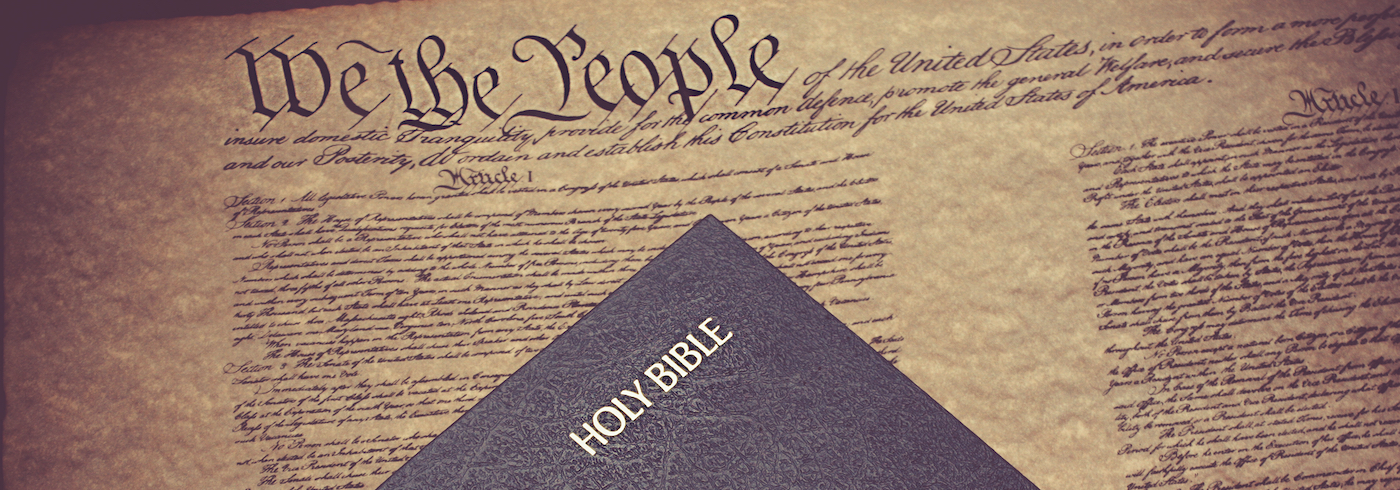Church and State in a Time of Crisis
Thoughts about our responsibility and opportunity
The coronavirus pandemic we are experiencing has thrown the entire world into crisis. Here in the United States, federal, state, and local governments have asked or mandated citizens to curtail normal activities, including public gatherings, in an effort to slow and stop the spread of COVID-19. In response, this past Sunday, churches throughout the U.S. closed their doors for worship.
These closures raise an important question about what obedience the Church owes the State in a time of crisis. In this article, in consultation with our Commission on Doctrines and Practices, I’ve pulled together some thoughts to guide our thinking about our Christian responsibilities to civil authorities.
First, the Bible is clear that in general, we owe obedience to the State. In Romans 13:1–5, the apostle Paul called the Church to “be subject to governing authorities.” He offered two reasons for doing so: “possible punishment” and “a matter of conscience.” Punishment is an external force acting upon us. Conscience is an internal force acting within us. We obey government because it is the right thing to do, not merely the expedient thing.
The Bible also offers an analogy for quarantining individuals to safeguard the community. In Leviticus 13–14, a person with a “defiling skin disease” was considered “unclean” and isolated from the community. After a period of time, they were examined by a “priest” who determined whether their disease had healed. If it had, they were reintegrated into the community. If not, they were placed “outside the camp.” Moses’ concern here was the “holiness” of the community, but there is an analogy to public health as well.
God has given us an unparalleled opportunity to minister to the needs of our community in new ways. Let us seize the day!
In light of these two considerations, obeying the government by temporarily foregoing public worship to slow a viral pandemic is a matter of conscience for the Church. It shows the broader community that the people of God care so much for them that we will do what we can to slow a contagion. It is the right thing to do.
This raises a third point, of course: the limits of government authority. Here, the Bible again provides guidance. The explosive growth of the Church led to ministries of preaching and miracles in Jerusalem (Acts 2–3). In Acts 4–5, Luke records the arrest and trial of Peter and John before the Sanhedrin. The result of the trial was a government prohibition to “speak or teach at all in the name of Jesus” (4:18). Peter and John could not comply with this prohibition. “Which is right in God’s eyes,” they responded, “to listen to you, or to him?” (4:19). And, “We must obey God rather than human beings!” (5:29). When government prohibits what God commands, our priority as Christians is obedience to God.
However, it should be noted that in the present crisis, no government authority has forbidden preaching and teaching in the name of Jesus Christ. On the contrary, many American political leaders have called for the prayers of believers. Because of this, the present closure of public gatherings, including churches, does not necessitate a hard choice between obedience to God or government. These closures are both temporary and targeted at protecting public health. The Church needs to observe the closures, heed the call to prayer, and find ways to serve the community with the love and peace of Christ.
A fourth and final consideration touches on the mission of the Church. In Matthew 28:19–20, Jesus said:
Therefore go and make disciples of all nations, baptizing them in the name of the Father and of the Son and of the Holy Spirit, and teaching them to obey everything I have commanded you. And surely I am with you always, to the very end of the age.
The Church exists because of a commitment to the Lord Jesus Christ and the mission He assigned. “All nations” is the field in which the Church flourishes as disciples are made, baptized, and taught the commands of the Lord, who promised His presence to “the very end of the age,” through all of the crises that impact human existence.
How is the mission of the Church accomplished? It is accomplished through word and deed, whether we are gathered together or distributed throughout society. The gospel must be preached and lived out before the hurting world. Jesus regularly ministered to the needs of humans, so should the Church in this present situation. The coronavirus pandemic is an opportunity for the Church to show the love of our Lord in tangible ways as people are suffering.
It is also an opportunity that requires the Church to find new and creative ways of ministering both to believers and to those who have not yet come to faith. Technology can be an effective means by which the Church can continue to gather for worship and accomplish the Great Commission. Even a cell phone may be a vital instrument to reach out during this time when public meetings are discouraged. Consequently, let us not become so focused on what we cannot do because of temporary church closures that we fail to see the open doors of technological and personal ministry that the Holy Spirit is calling us to walk through!
God has given us an unparalleled opportunity to minister to the needs of our community in new ways. Let us seize the day!
Influence Magazine & The Healthy Church Network
© 2025 Assemblies of God

